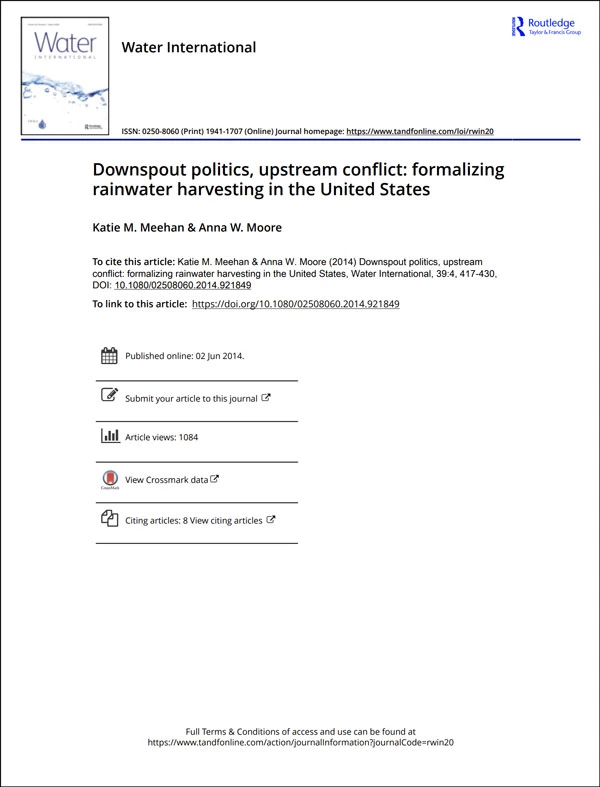
This article examines the formalization of rainwater harvesting (RWH) and the implications of new policy trends for water governance. Analysis of 96 RWH policies across the United States indicates three trends: (1) the ‘codification’ of water through administrative rather than public law; (2) the institutionalization of RWH through marketbased tools; and (3) the rise of policies at different spatial scales, resulting in greater institutional complexity, new bureaucratic actors, and potential points of friction. Drawing on the cases of Colorado and Texas, the article argues that states with diverse legal traditions of water enable more successful regulatory environments for downspout alternatives.
Keywords: rainwater harvesting; scale; formalization; governance; legal pluralism; property

